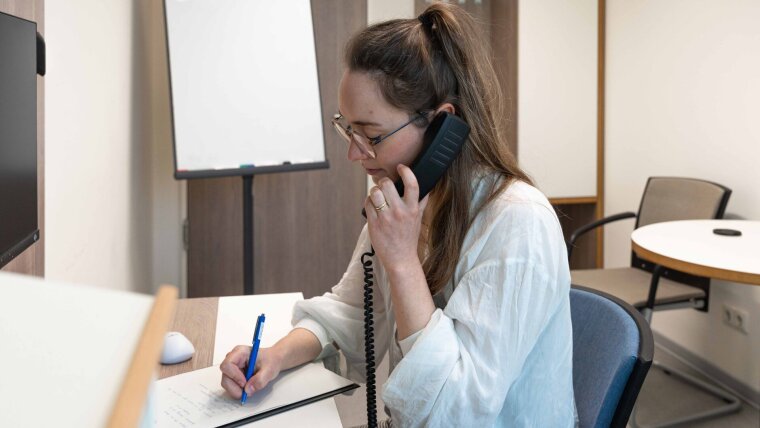
- Research
- Knowledge Transfer and Innovation
Published: | By: Stephan Laudien
Caring for a person with dementia can literally become a life task. In Germany, the vast majority of people with dementia are looked after and cared for by their relatives at home. This accounts for around 85 per cent of care services. These relatives face a daunting task that is difficult to cope with; a task in which many are left to their own devices. "We would like to offer support to caring relatives," says Sophie Geßner from the Department of Clinical-Psychological Intervention at Friedrich Schiller University Jena. Under the direction of Prof. Dr Gabriele Wilz, the staff of the Department of Clinical-Psychological Intervention have designed the "Open Ear" project, which is now being launched. It offers caring relatives the opportunity to talk to a clinically experienced psychologist over the phone and get support.
The number of dementia cases is increasing every year
"We offer carers' relatives a low-threshold tender that we want to establish as long term as possible," says Gabriele Wilz. It offers those affected the opportunity to talk about their worries and grades. If necessary, there is also the opportunity to receive longer-term psychotherapeutic support in the affiliated psychotherapeutic university outpatient clinic, says Wilz. If you are a relatives carer - the vast majority of whom are women - and would like to take up the offer to talk, you can reach the "Open Ear" on Mondays from 10 am to 12 noon and on Wednesdays from 2 pm to 4 pm. The telephone number is 03641 945173.
If possible, carers are referred to further offers of help. Experience has shown that relatives are sometimes so involved in the care situation that other offers of help, such as advisory services outside the home, cannot be taken up, says Sophie Geßner: "In this stressful situation, it is difficult to leave the house or flat for a while." Prof Wilz points out that the numbers are gradually increasing; there are already around 1.8 million people affected by dementia across Germany, with around 440,000 new cases added every year. In Thuringia, the numbers are particularly high compared to the overall population, says Gabriele Wilz. The "Open Ear" project offers an approach that takes account of the individually and socially challenging situation and provides targeted support for caring relatives.